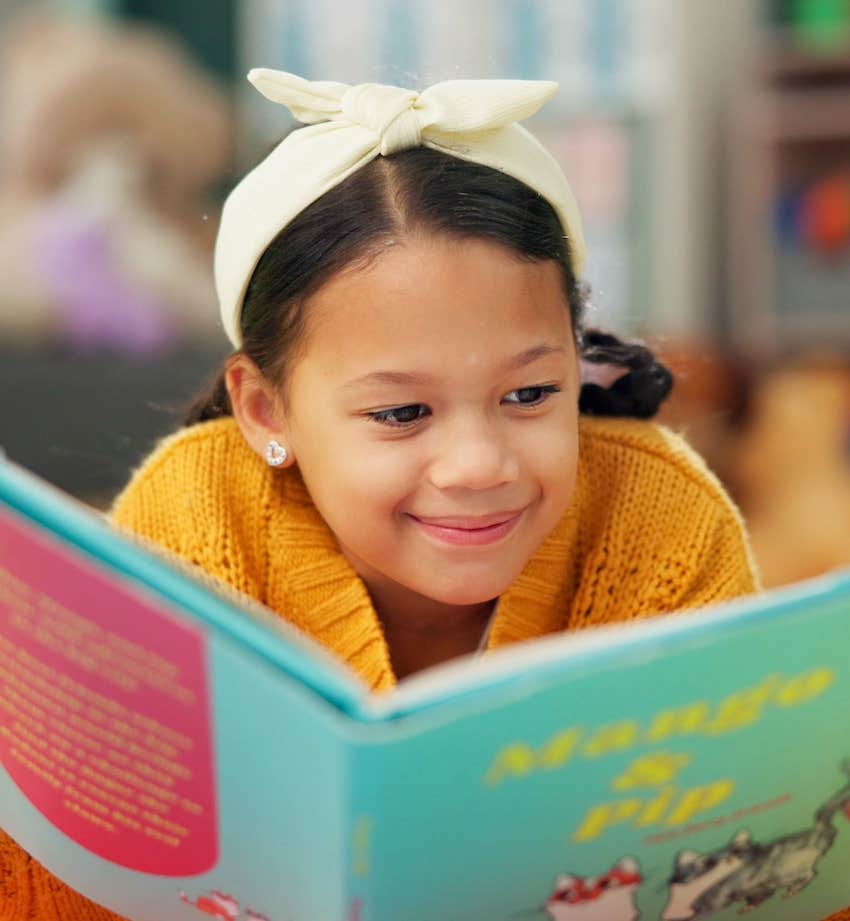The Personality Trait That’s Basically Your Superpower, Based On Your Birth Order
Perfectionists, mediators, and charmers: your birth order will reveal all.
 Peopleimages.com - YuriArcurs | Unsplash
Peopleimages.com - YuriArcurs | Unsplash The role birth order plays in superpower personality traits and IQs has been debated and researched for years. But do the stereotypes hold water?
"They say that children's behavior and development depends on a big percent on what role they play in families," Brenda K. says, asking other Circle of Moms members, "Where is your child at?" Another member named Charlie P. has a similar question. "Birth order and personality: Where do you fit in? Do you think this is an accurate description of you or your children?"
As you parent, Circle of Moms members say it's worth considering your children's birth order, and subsequently how you work through some of the less desirable traits.
The personality trait that's your superpower, according to birth order:
1. The superpower trait of the oldest is that they're goal-oriented
A lot of factors can affect your child's personality, such as age, gender, the gap between siblings, family income, demographics, and more. But generally speaking, eldest children "identify with parents and authority, and support the status quo, whereas younger children rebel against it," according to Frank Sulloway, adjunct professor at the University of California, Berkeley, and one of the world's experts on birth order and family dynamics.
First-born children are known to be perfectionists, goal-oriented, and self-reliant, yet are sometimes criticized for being self-centered, rigid, and overly critical, among other traits. Only children are similar to eldest children, yet sometimes can be lonely and feel inferior, according to a study from the American Psychological Association (APA).
The birth order report characterizes middle children as mediators who like to avoid conflict, and are people-oriented, but can be free-spirited and secretive. And last-born children are described as outgoing, affectionate, and charming people who can sometimes be manipulative and attention-seeking.
2. The superpower trait of the youngest is that they're risk-takers
 PeopleImages.com - Yuri A via Shutterstock
PeopleImages.com - Yuri A via Shutterstock
While parenting affects a child's personality, "birth order and parenting play a huge role in my mind," says Circle of Moms member Rosie P., based on her family's dynamics. Her baby brother still lives at home at age 25. "That would be unheard of if it were me or my sister.
However, he works, he helps out around the house, and he is a very good kid, but somehow he can't cut the apron strings," she says. Meanwhile, she recalls her husband, who was an older brother, would look after his little sister.
Tana K. says she and her children fit the stereotypes, as well. "My first is exactly what they say. He's unbelievably patient for a 2-year-old, he is very much a perfectionist, and loves things to go his way," she says. As the eldest child, she also recognizes the "grin and bear it" mentality in herself.
She already can see the traits of the youngest child in her 10-month-old. "He is very much a risk-taker, as described by the APA. He gets into more trouble than my 2-year-old does, and he loves attention from anyone or anything. He is also extremely sensitive."
Danielle G. agrees there's some truth to birth order traits, noting she worked on a college project about birth order and believes her middle child fits the stereotypes to a T. "Middle children tend to be the most independent, and a lot of times that leads to trouble-making or whatnot.
Also, some adult middle children said they felt left out being the middle child, even though we spend a lot of time with them. They know the oldest was first, and the baby is the baby, they don't have a 'place.'"
3. The superpower trait of the middle child is that they forge their own path
 PeopleImages.com - Yuri A via Shutterstock
PeopleImages.com - Yuri A via Shutterstock
Once parents are aware of each child's tendencies, if they notice something negative, they can take steps to improve the birth order behavior. In particular, Circle of Moms members say to watch the middle child to make sure he doesn't feel excluded. "A child can develop middle-child syndrome only when feeling left out by the family," Atasha K. explains.
"For example, your oldest does well at school and gets ample attention over good grades and, well, the baby is the baby (no need for explaining). Your middle child may feel they are not as important or loved as the other children," she explains. Venessa N. agrees, saying she "always felt overlooked and left out" as a middle child. "Older siblings get more freedom, younger siblings get more attention. Older than me were two girls and younger were two boys, so I kinda felt I didn't fit in. And honestly, I felt like that until into my 20s."
If you find your child is starting to feel that way, help them feel more included so they don't crave the attention, Marybeth D. says.
Theresa K. agrees, "Don't expect your middle child to like the same things as your older child or to excel in the same areas. Allow your middle child to be unique. Resist the temptation to 'compare' children, or to encourage the middle child to be 'like' an older brother or sister. (When Johnny was your age he...)
Likewise, don't allow your middle child to compare herself with older siblings either. Stress the idea they aren't in competition with brothers and sisters, and don't need to try to be 'as good as' them at anything," as supported by research in The Journal of Marriage and the Family.
For a younger, strong-willed child, Maureen B. suggests teaching her how to better handle emotions when she wants something.
She says her daughter "will fight you tooth and nail" for something that she knows she wants, and she's trying to help her daughter with "guidance and structure" to overcome her expectation of being treated like a baby that is doted on.
As Maureen says, "The last couple of years, we have been getting more strict with her, 'cause she seems to think she can get away with anything 'cause she is so cute." Jessica G. adds she's trying to teach her twin boys they aren't "entitled to more things 'cause they are older."
Regardless of what birth order personality traits, as suggested by the APA, are apparent in your child, Circle of Moms members say, that parents should function as they always do, with patience, understanding, and good guidance tailored to each child.
"For the most part, whether or not a child is well-adjusted as an only child or one with siblings has to do with parenting," Cassie C. says. "It almost all comes down to parenting whether you have one child or 10.
An only child can be completely self-centered, selfish, and socially awkward, but so can a child who has three siblings. It is our job as parents to raise our child/children to be caring, loving, selfless individuals who can stand up for what they believe and help those around them whenever possible, whether we decide to only have one child or multiple."
Tasha agrees, saying personalities depend on how parents "approach it." "If you spend as much time with each of your children as you can, and point out the good in all of them, then I truly don’t think it matters what the birth order is," she concludes.
Patricia-Anne Tom is an award-winning editor, writer, and consultant for business and consumer publications.

